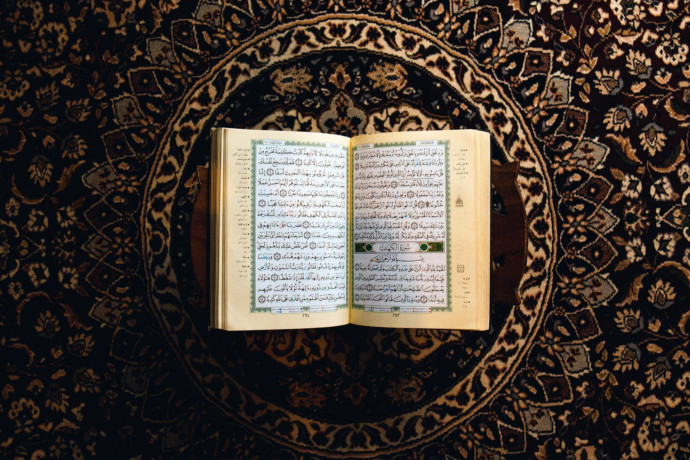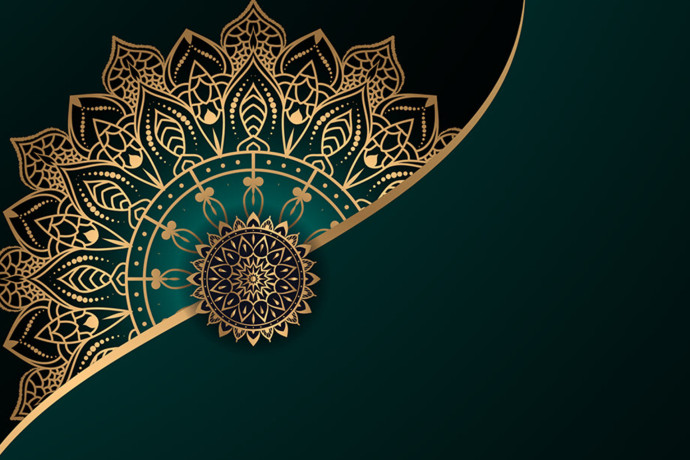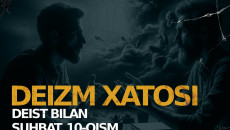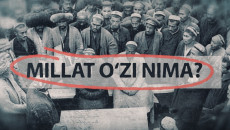You all need Me!
It is narrated from Abu Zarr Ghafari, may God be pleased with him: In the hadiths that the Messenger of God, may God bless him and grant him peace, narrated from the Most High and Glorious Lord, Allah, the Exalted, says:
"O my servants! I forbade oppression. I have forbidden him even among you. So do not oppress one another.
O my servants! All of you are misguided except those whom I have guided. Therefore, ask Me for guidance, and I will guide you to the right path.
O my servants! All of you are hungry except those whom I have fed. Therefore, ask Me for sustenance, and I will feed you.
O my servants! You are naked except those whom I have clothed. Therefore, ask Me for clothes, and I will clothe you.
O my servants! You make mistakes day and night. And I am the one who forgives all sins. Therefore, ask for forgiveness, I will forgive you.
O my servants! You can't get to the point where you can hurt me. You will not be able to reach a position where you can benefit me.
O my servants! Even if you are the most pious among you, those before you and those after you, men and jinn, my wealth will not increase.
O my servants! My wealth will not diminish, even if you are like the worst among you, those before you and those after you, men and jinn.
O my servants! All of you, the former and the latter, the humans and the jinn, gather together in one square and ask Me for anything, and I will grant each of you what you ask for. In this way, just as a needle is dipped into the sea, as its water decreases, so does my property decrease (that is, nothing decreases).
O my servants! As for your deeds, I will count them for you. Then I will give them their reward (reward or punishment) in full. Therefore, whoever does good, let him praise Allah. Whosoever does something other than that, let him not blame anyone but himself!'' (Imam Muslim and Imam Tirmidhi)
Commentary: This hadith is of particular importance as it contains the basic rules of our religion and its brief meaning. For this reason, separate books have been written dedicated to his commentary.
In the hadith, it is said that Allah has forbidden oppression. Scholars say that it is foolish to say that God allows oppression. After all, the whole universe belongs to God Almighty. He disposes of his property as he wishes. He does not have a partner, nor does he have a fault, that he takes from his partner's property and takes his own.
Allah, the Exalted, commanded His servants to refrain from oppression, just as He forbade it. What he hates the most is oppression. Also, this prohibition has a general meaning. That is, oppressing a believer is the same as oppressing others - both are prohibited.
The phrase "all of you are innocent" in the hadith does not contradict the hadith that says "all children are born in the nature of Islam". Perhaps, this place means that if a person is left to his own devices with his weak aspects such as lust and desire for pleasure, he would go astray.
It is known from the belief of Islam that Allah Almighty has determined the sustenance of all His creatures. With the quality of Ar-Razzaq, he provides sustenance to both the creatures under the sea and the creatures among the rocks. No one can eat even a morsel without his permission. A person who knows these things works honestly and asks God for pure sustenance.
Rizq does not mean only things suitable for eating and drinking. Perhaps clothing, housing, and all the means necessary for a person's life are also sustenance.
Allah's kindness to His servants is also known from the attributes of the one who forgives and has mercy on them (Al-Ghafur), and covers their sins (Sattorul uyub). This is evidenced by the fact that in several places of the Qur'an, God's mercy is greater than his anger. All that is left for the servants is to repent and beg God for their sins on the condition that they do not repeat them again.
No matter how advanced the human race is in the field of science and technology, it remains a helpless and helpless slave before the Creator. Even if not only humans, but also jinn and all other creatures act in unison, they are nothing in front of His infinite power. Realizing these things and humiliating oneself in front of Allah, the Most High, leads the servant to divine approval and spiritual advancement.
Allah created humans and jinn to worship Him. Angels are always at His command, in perfect prayer. However, not all humans and jinns obey this divine command. Even if all of them submit to obedience and worship like the most pious servant, nothing will be added to the wealth of Allah. Also, even if none of them stop praying to the Lord, His greatness and power will not be impaired, and His state will not be diminished.
As much as the water in the sea decreases when a needle is dipped, even if all the wishes of all His servants are granted, nothing will decrease from His property, which means that God's property is unlimited. As you know, the sea is the biggest thing in nature, and the needle is the smallest thing. In fact, there is no decline in seas by dipping the needle. This metaphor is very appropriate in expressing the infinite wealth of Allah.
At the end of the hadith, it is said that every good thing that happens to a person should be attributed to God, and every bad thing should be repented of. Those who do not understand this measure well and do not apply it in their life can make a serious mistake in religion. It is given to arrogance and conceit, which considers goodness as its own. A person who does not see the evil in himself, instead of reforming, falls into the pit of vices such as criticism of others, dissatisfaction with the laws and regulations of the society in which he lives. May Allah protect us from these two situations!
Based on sources
Prepared by Sadiq Nasir.














